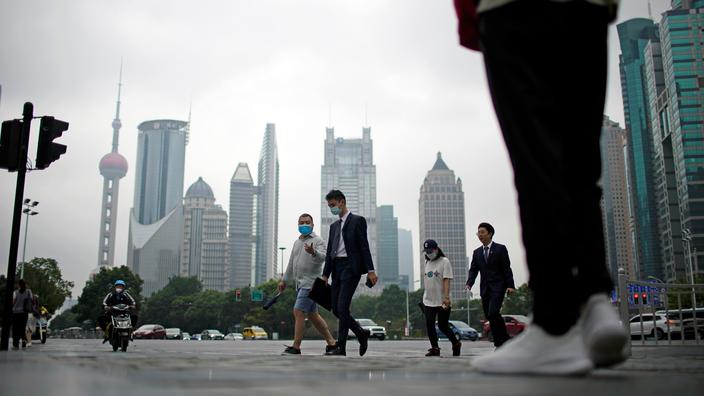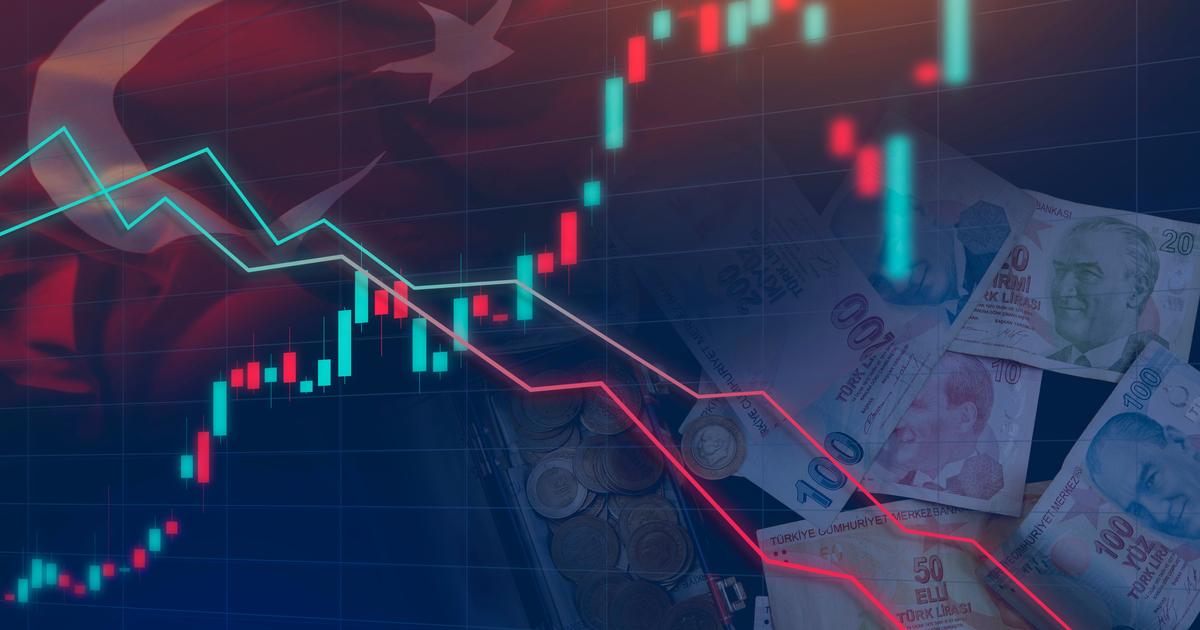“
Uncertainties are piling up
”.
China saw its growth falter in the third quarter, with a GDP increase of 4.9%, the result of the real estate crisis and electricity shortages that penalize businesses.
This slowdown was widely anticipated.
A group of analysts polled by AFP, however, expected a less pronounced deceleration (5%).
Read alsoAccess to public markets: how Europe wants to respond to China
In the second quarter of 2021, the country's gross domestic product (GDP) recorded an increase of 7.9% over one year, after a rebound over the January-March period (18.3%). From one quarter to another, the growth of the Asian giant grew by only 0.2%, a rate well below that of the period April-June (1.3%).
Although questionable, China's official GDP figure is still under scrutiny given the country's weight in the global economy.
"
Uncertainties related to the global economy are accumulating, while the domestic recovery remains unstable and uneven,
" noted the National Bureau of Statistics (SNB).
This slowdown in growth is mainly linked to "
power cuts, the epidemic rebound in certain regions in August, disruptions in supply chains and the slowdown in real estate
", notes analyst Rajiv for AFP. Biswas, from IHS Markit.
Read alsoHow China became the leading manufacturer of anti-Covid vaccines
Now almost free of Covid-19, China sees its recovery threatened by the sharp rise in the cost of raw materials, in particular coal, on which the country is very dependent to supply its power plants. As a result, power plants are idling, despite strong demand, and electricity is rationed, which has boosted production costs and penalized businesses. In September, industrial production grew by only 3.1% over one year, a much slower pace than that recorded a month earlier (5.3%). Analysts were certainly expecting a slowdown, but more moderate (4.5%).
Another point of concern for economists: the setbacks of Evergrande and a possible bankruptcy of this real estate giant. This sector, which has traditionally been one of the locomotives of the Chinese economy, has played a key role in the post-pandemic recovery. As a result, "
considerable uncertainty remains
" for growth at the end of the year, recently underlined in a note by the investment bank Goldman Sachs. A contagion of the real estate crisis to the rest of the economy could cost "
in the worst case scenario
" one to two points of growth to China, warned the UBS bank.
The authorities have also launched a campaign in recent months to curb what they consider to be "
disorderly
" development of the economy.
Several dynamic sectors (digital, showbiz, tutoring courses, etc.) have been targeted, causing firms to lose tens of billions of euros in stock market value in their sights.
This turn of the screw created uncertainty among investors and weighed on growth.
Objective of 6% growth in 2021
On the health front, China was faced this summer with an epidemic rebound, the most significant in terms of geographic extent, which penalized consumption.
The situation is now largely under control.
Retail sales, the main indicator of consumption, nevertheless rose 4.4% year-on-year in September, compared to 2.5% in August.
This is a level well above analysts' forecasts (3.3%).
The unemployment rate - calculated for urbanites alone - was posted in September at 4.9%, down 0.2 points in August, after an all-time high of 6.2% in February 2020, at its peak of the epidemic.
As for investment in fixed capital, its growth slowed sharply over the first nine months of the year, to 7.3%, according to the SNB.
Officially, the Chinese government is aiming for a GDP growth target of at least 6% this year.
The International Monetary Fund (IMF) expects an increase of 8%.
"
But the outlook looks difficult for the fourth quarter,
" warns Rajiv Biswas.
"
Electricity shortages are set to continue in winter
", a season that traditionally sees a peak in consumption.







/cloudfront-eu-central-1.images.arcpublishing.com/prisa/V7VWQYKVFVAJDPG3TQOP75Y74M.jpg)







